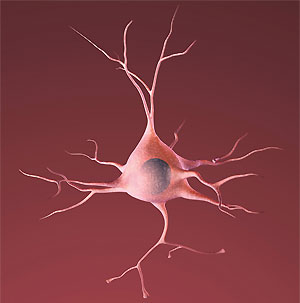What is free will, and how does it fit into a naturalistic worldview?
 Philosophical materialism (common among humanists) is sometimes attacked on the grounds that it precludes the possibility of free will. Here’s how:
Philosophical materialism (common among humanists) is sometimes attacked on the grounds that it precludes the possibility of free will. Here’s how:Classical Newtonian physics describes a material world operating according to fixed and immutable laws of cause and effect. Under this picture, our actions are fundamentally predetermined: we can only act one way in any particular situation. Scratch free will.
Quantum physics rescues us from this clockwork universe, but only by injecting randomness into the equation. Randomness is not really free will either, so this escape from determinism does nothing to restore free will.
 While they are interesting, I don't really think that either of these observations - the deterministic behaviours apparent on the large scale, or the quarky randomness that emerges at the quantum level - does any violence to the idea of free will.
While they are interesting, I don't really think that either of these observations - the deterministic behaviours apparent on the large scale, or the quarky randomness that emerges at the quantum level - does any violence to the idea of free will.The key thing about free will is not what it looks like from the atom's perspective, nor from the galaxy’s perspective. The key thing is what it looks like from your perspective. It's probably true that your mind is just the sum of the neural activity of your brain cells; and their actions are in turn the sum of the electrical and chemical events happening at a molecular level; and so on down to quarks and leptons and whatnot.
 That's interesting. Fascinating, in fact.
That's interesting. Fascinating, in fact.But for the question of free will, so what? Free will, as it bears on your actual life, is about being able to put your choices into action. Whatever you think lies behind this "me" - be it atoms and photons or soul and immaterial will - it is still meaningful to talk about "me": what "I" wish, and what "I" do.
As a humanist, I value human life because of properties it has at the human level: consciousness, the capacity to feel pleasure and pain, self-improvement and a desire to understand things. Their value lies not in where they come from, or why they are here, but simply that they are here.
So it is with free will. Its value does not depend on some theory about why we have it; it is valuable because of what it is on the human level. Newtonian clockwork determinism or quantum multiverse randomness are fine for philosophers and physicists. But for me, here and now, there are far more important questions about free will. Do all people have the political freedom to exercise free will? What does a physical addiction mean for free will?
I know it might sound like I'm just defining away the problem of free will. That's philosophy for you. Sometimes it's not a matter of subtle, esoteric reasoning; sometimes it's a matter of identifying the right definition. The right question.
So ask yourself: when it comes to free will, what is important to you – quarks and galaxies or human intentions?




I should have mentioned - the key thought in this post is due to Daniel Dennett. I haven't yet read any of his books, but I attended a talk of his once. The idea of free will as something separate from questions of determinism was prominent there.
ReplyDeleteI like what you say here. It is something I have thought regarding freewill, but never articulated as well as you have done. I have just discovered your blog and will keep reading.
ReplyDeleteThe facts interest me.
ReplyDelete